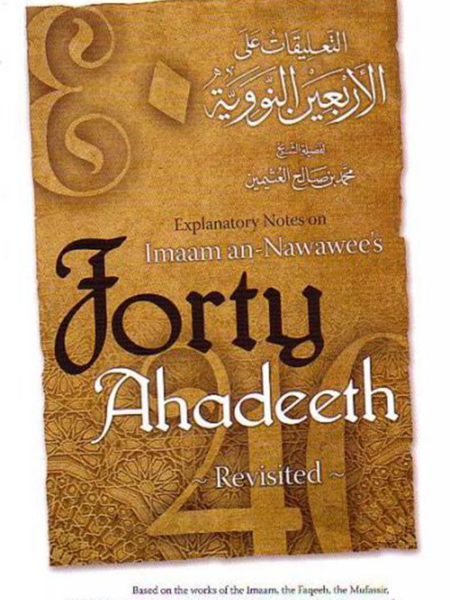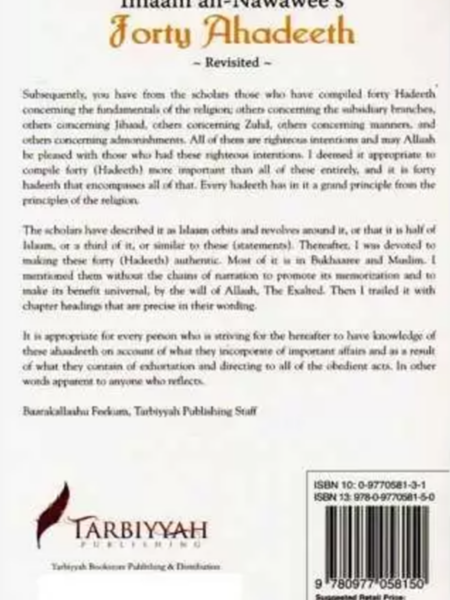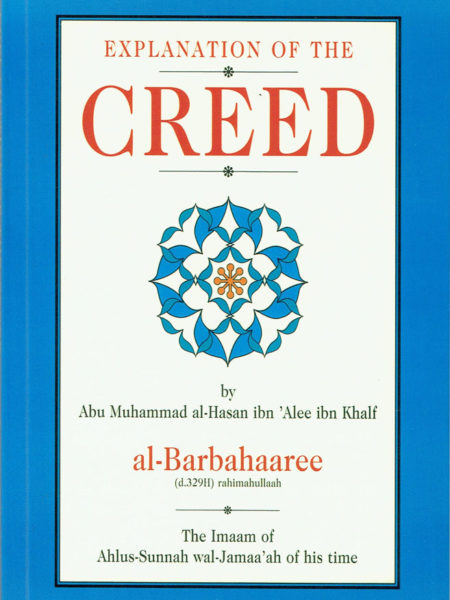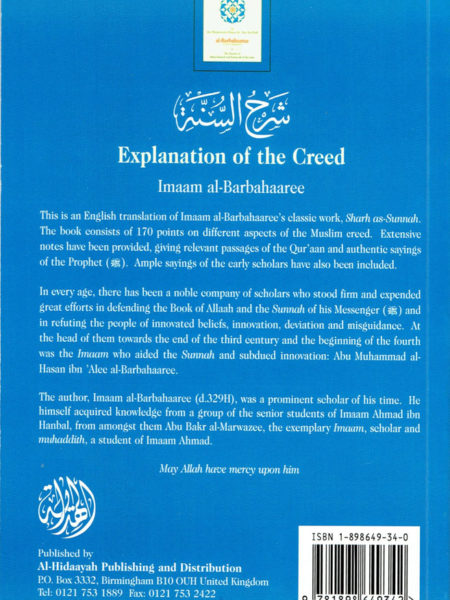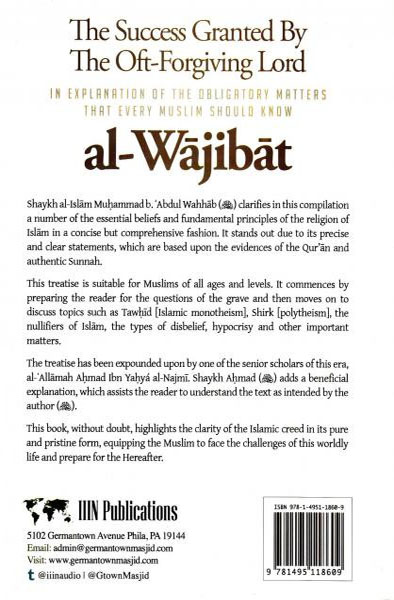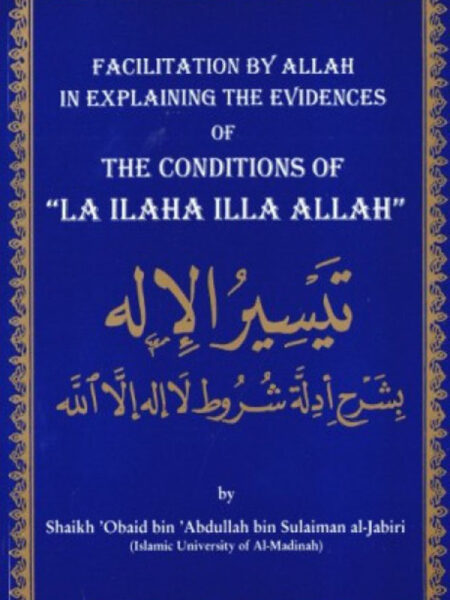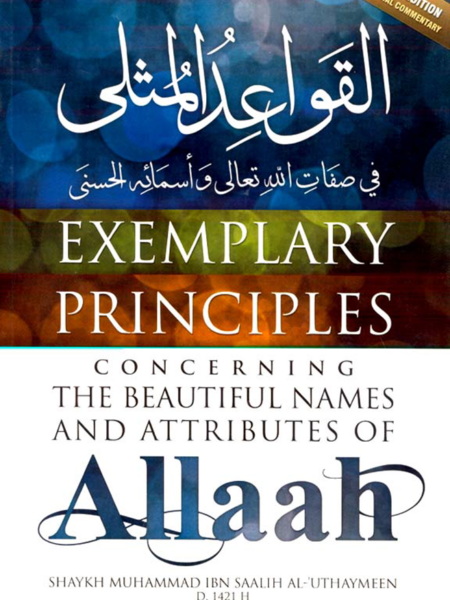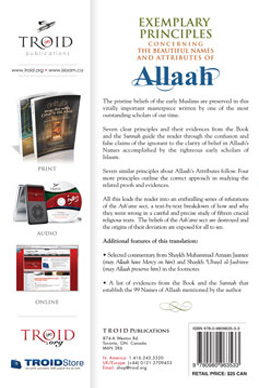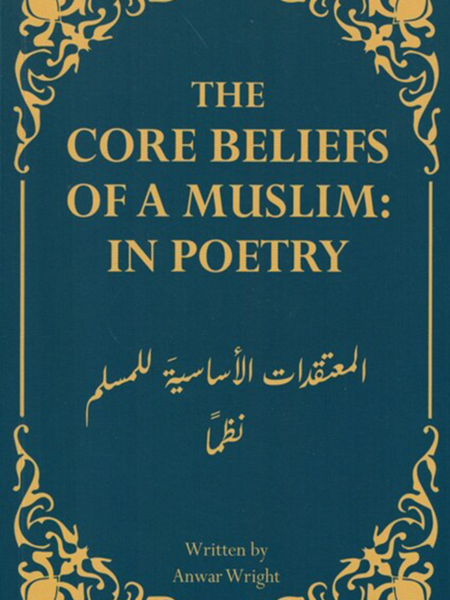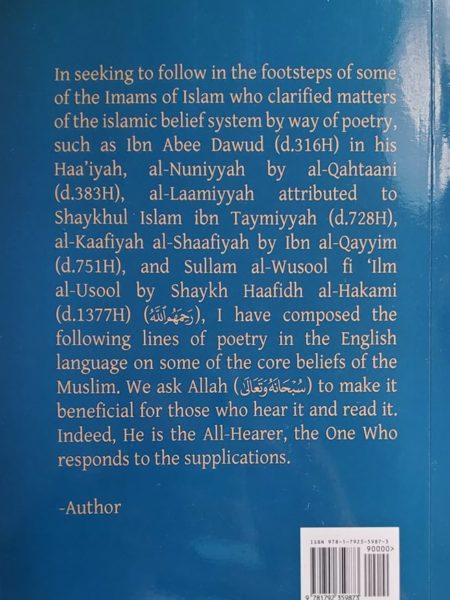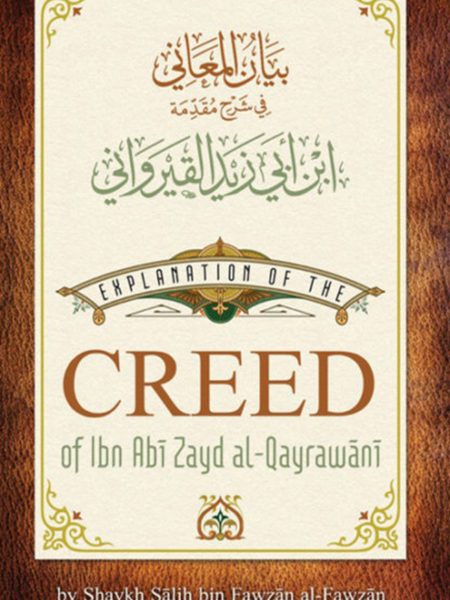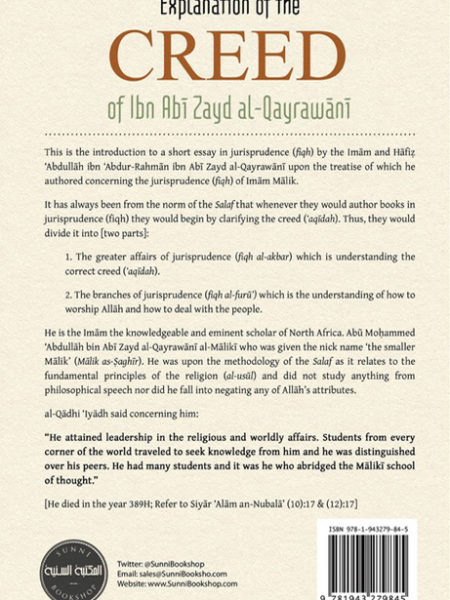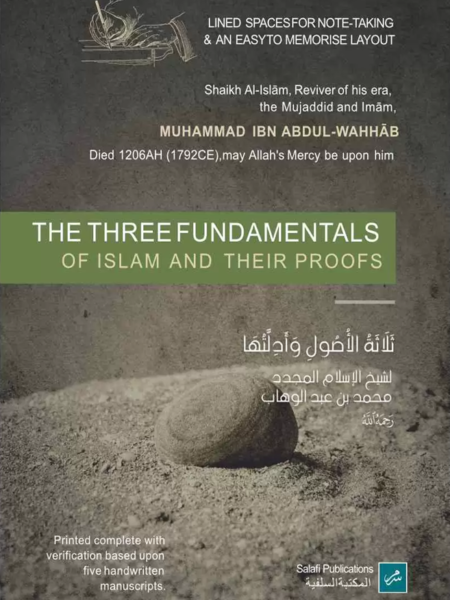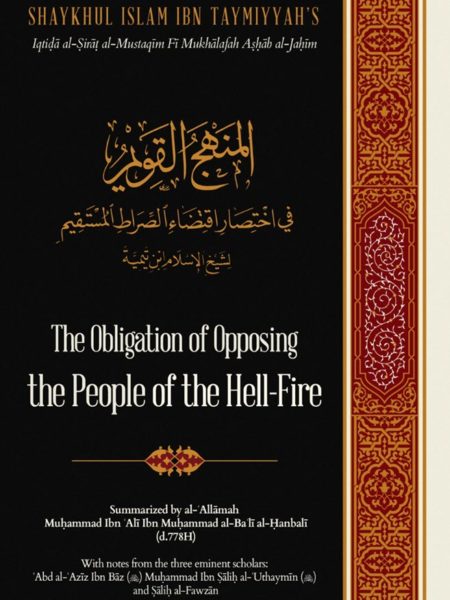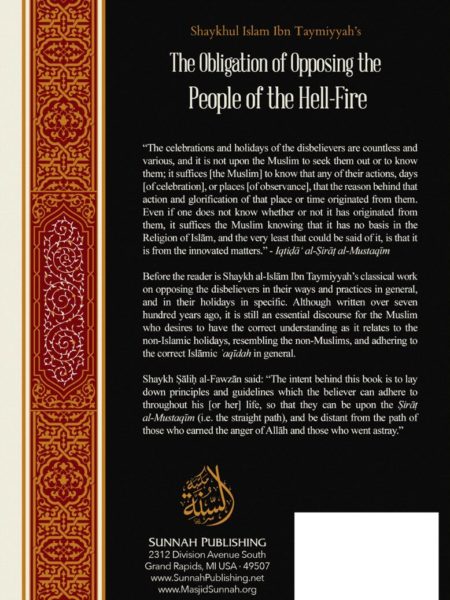-
-
-
-
-
These are a few short words in clarification of the belief of Ahl al-Sunnah wa al-Jama’ah. It is necessary to write them down due to the separation and differing that the Islamic lives through today, which is represented by the abundance of contemporary sects and different groups. Every one of the calls to their (own) creed and praises his (own) group, until the ignorant Muslim is confused as to whom he should follow and who he should imitate…
-
-
-
Verily, the foremost matter individuals should put to effect:
To learn the purpose for which Allah created them, took the covenant upon them, sent His Messengers to them, and sent down His divine scriptures. For this purpose, the worldly life, the Hereafter, the paradise and the hell-fire were created. Additionally, owing to this purpose, the Judgment Day will be established, the scales of deeds will be set, the sheets of deeds will be scattered, and sorrow and happiness will be on that Day and on which light will be distributed.
Allah says,
“And he for whom Allah has not appointed lights, for him there is no light.”
Allah instructs us that we are created to worship Him. The backbone and foundation of worship is Tawheed; with which all the Messengers had been missioned to proclaim. The simple profession that comprises Tawheed on its entirety is very short, copious of implications, and critically significant it is:
“La ilaha ill Allah”
-
The pristine beliefs of the early Muslims are preserved in this vitally important masterpiece written by one of the most outstanding scholars of our time.
Seven clear principles and their evidences from the Book and the Sunnah guide the reader through the confusion and false claims of the ignorant to the clarity of belief in Allaah’s Names accomplished by the righteous early scholars of Islaam.
Seven more principles and their evidences follow, giving the reader firm understanding of the correct beliefs about Allaah’s Attributes. Four more principles outline the correct approach in studying the related proofs and evidences.
All of this leads the reader into an enthralling series of refutations of the false notions of the Ash’aree sect, a text-by-text breakdown of how and why they went wrong in a careful and precise study of fifteen texts from the Book and the Sunnah. The beliefs of the Ash’aree sect are destroyed and the origins of their deviation are exposed for all to see.
“…A magnificent book… a clarification of the creed of the righteous Salaf concerning the Names and Attributes… great principles and collective benefits concerning the topic…”
– Shaykh Ibn BaazAdditional features of this translation:
Selected commentary from Shaykh Muhammad Amaan Jaamee (may Allaah have Mercy on him) and Shaykh ‘Ubayd al-Jaabiree (may Allaah preserve him) in the footnotes.
A list of evidences from the Book and the Sunnah that establish the 99 Names of Allaah mentioned by the author
-
In seeking to follow in the footsteps of some of the Imams of Islam who clarified matters of the Islamic belief system by way of poetry, such as Ibn Abee Dawud (d.316H) in his Haa’iyah, al-Nuniyyah by al-Qahtaani (d.383H), al-Laamiyyah attributed to Shaykhul Islam ibn Taymiyyah (d.728H), al-Kaafiyah al-Shaafiyah by Ibn al-Qayyim (d.751H), and Sullam al-Wusool fi ‘Ilm al-Usool by Shaykh Haafidh Al-Hakami (d.1377H) (May Allah have mercy on him), I have composed the following lines of poetry in the English language on some of the core beliefs of the Muslim. We ask Allah the Most High to make it beneficial for those who hear it and read it. Indeed, He is the All-Hearer, the One Who responds to the supplications.
-
This is the introduction to a short essay in jurisprudence (fiqh) by the Imām and Hāfiẓ ‘Abdullāh ibn ‘Abdur-Rahmān ibn Abī Zayd al-Qayrawānī upon the treatise of which he authored concerning the jurisprudence (fiqh) of Imām Mālik.
It has always been from the norm of the Salaf (X) that whenever they would author books in jurisprudence (fiqh) they would begin by clarifying the creed (‘aqīdah). Thus, they would divide it into [two parts]:
1. The greater affairs of jurisprudence (fiqh) al-akbar) which is understanding the correct creed (‘aqīdah).
2. The branches of jurisprudence (fiqh) al-furū’) which is the understanding of how to worship Allāh and dealings with the people.
-
-
-
Cart







